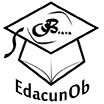Teaching-learning of social sciences: ends and means for university education.
Keywords:
teaching, learning, social sciences, university educationAbstract
The social sciences as sciences of men in time and disciplines in constant construction and theoretical elaboration, do not represent definitive knowledge, they become articulators of diverse elements of historical, philosophical, economic, socio-political, cultural knowledge, without hyperbolizing any, centered on the totality from a close dialectical connection. The objective of this article is to theoretically substantiate the potentialities of the teaching-learning of the social sciences as ends and means for the education of the student in the university context. In the research process, theoretical methods such as: analytical-synthetic, inductive-deductive and historical-logical were used to study in depth the available information and select it in a pertinent manner to arrive at the results. The empirical methods include documentary analysis, for the search of information published in academic databases. The social sciences are ends insofar as they systematize knowledge about society in its different determinations, preserve historical memory to act in different domains of social life, and means insofar as they facilitate the continuation of this study through reflection, research, problem solving, as well as the critical and creative evaluation of information, essential aspects for education.
Downloads
References
Amalia, E. y Ramírez, E. (2020). La extensión universitaria y la formación ciudadana en la comunidad. Revista Observatorio de las Ciencias Sociales en Iberoamérica 1(5). https://www.eumed.net/es/revistas/observatorio-de-las-ciencias-sociales-en-iberoamerica/diciembre-2020/extensión-universitaria-comunidad.
Benjumea, M. y Mesa, A. (2021). Educación y formación para la ciudadanía en y desde la universidad: aportes para el debate. FORUM. Revista Departamento Ciencia Política, 20, 86-109. https://doi.org/10.15446/frdcp.n20.91013
Bermúdez, R. y Martín, M. (2004). Aprendizaje formativo y crecimiento personal. Pueblo y Educación.
Correa, M. del C. y Espinosa, G. (2016). Video Institucional Bienvenidos a la FCSH para la Facultad de Ciencias Sociales y Humanísticas [Tesis de grado inédita. Escuela Superior Politécnica del Litoral. Guayaquil]. http://www.dspace.espol.edu.ec/handle/123456789/54022
García, J. (1985). Obstáculos para la enseñanza de la metodología de la investigación en ciencias sociales en la Educación Superior. Revista Latinoamericana de Estudios Educativos XV(2), 99-103. https://www.researchgate.net/publication/263426449
Lolo, O. y Dávila, Y. (2016). Plan de estudios carrera Marxismo-Leninismo e Historia. Disciplina: Didáctica de las Ciencias Sociales. MES.
López, J. (2021). La importancia de enseñar Ciencias Sociales al estudiante en la actualidad. Revista Cognosis 6, Edición Especial. https://doi.org/10.33936/cognosis.v6i0.3396
Peña, V. (2006). ¿Por qué es importante la formación humanística? La Educación Superior en crisis. Revista Letras (Lima), 77(111-112), 169-174. http://revista.letras.unmsm.edu.pe/index.php/le/article/view/11
Rodríguez, K. L. y Valenzuela, M. G. (2017). Estudio de seguimiento a personas graduadas de postgrados de la Facultad de Ciencias Sociales y Humanísticas (FCSH) de la Escuela Superior Politécnica del Litoral (ESPOL). Revista Educación, 41(1), 44-61. http://dx.doi.org/10.15517/revedu.v41i1.17885
Valera, R. (2010). El proceso de formación del profesional en la educación superior basado en competencias: el desafío de su calidad, en busca de una mayor integralidad de los egresados. Revista Civilizar Ciencias Sociales y Humanas, 10(18), 117-134. http://www.redalyc.org/articul o.oa?id=100220339010







.png)



.png)



.png)





















